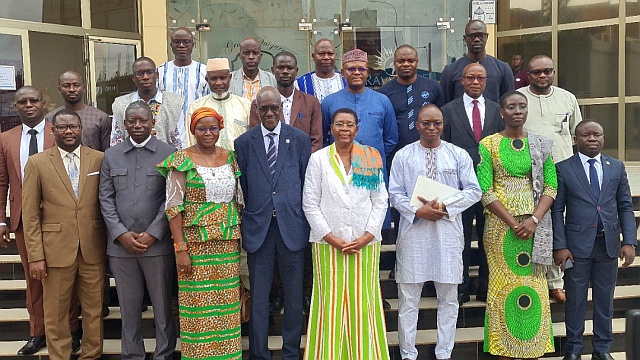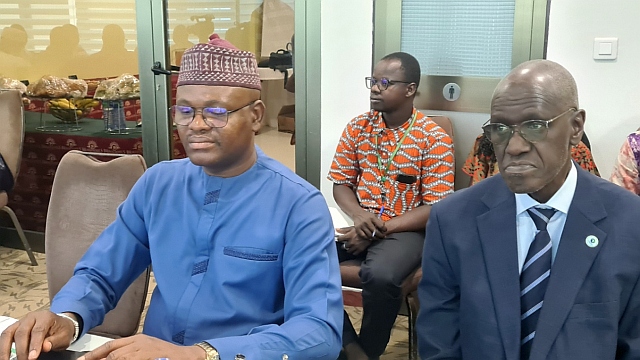The general objective of the meeting is to provide information on the state of implementation of the SDG6 in the Member States and the contribution of the Common Environmental Improvement Policy (PCAE) to achieving the objectives and commitments of the Member States in this area.
In the programme for the second day of this meeting, the President of GWP-WA, Mr Abdoulaye SENE, spoke to the experts about the challenges of water security and prospects for making the most of the conclusions of the 9th and 10th World Water Forums.
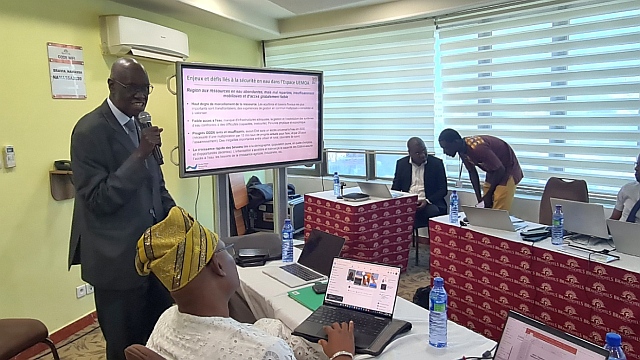 In his presentation, Chairman SENE highlighted the stakes and challenges of water security in the WAEMU region, noting the high degree of fragmentation of the resource, where the most important aquifers and river basins are cross-border, with numerous experiences of joint management that need to be consolidated and developed. The region is also characterised by poor access to water, a lack of adequate infrastructure, and difficulties in managing and operating water systems (capacity, insecurity). Progress in implementing SDG6 is slow and insufficient, and no State will have universal access to water by 2030 (current rates of progress for water need to be multiplied by 12, and by 20 for sanitation). Major inequalities between urban and rural areas (monitoring data). There is a major gap in water infrastructure, with underdeveloped hydroelectric potential and underdeveloped irrigation potential (only 7% of arable land under irrigation, compared with 20% worldwide).
In his presentation, Chairman SENE highlighted the stakes and challenges of water security in the WAEMU region, noting the high degree of fragmentation of the resource, where the most important aquifers and river basins are cross-border, with numerous experiences of joint management that need to be consolidated and developed. The region is also characterised by poor access to water, a lack of adequate infrastructure, and difficulties in managing and operating water systems (capacity, insecurity). Progress in implementing SDG6 is slow and insufficient, and no State will have universal access to water by 2030 (current rates of progress for water need to be multiplied by 12, and by 20 for sanitation). Major inequalities between urban and rural areas (monitoring data). There is a major gap in water infrastructure, with underdeveloped hydroelectric potential and underdeveloped irrigation potential (only 7% of arable land under irrigation, compared with 20% worldwide).
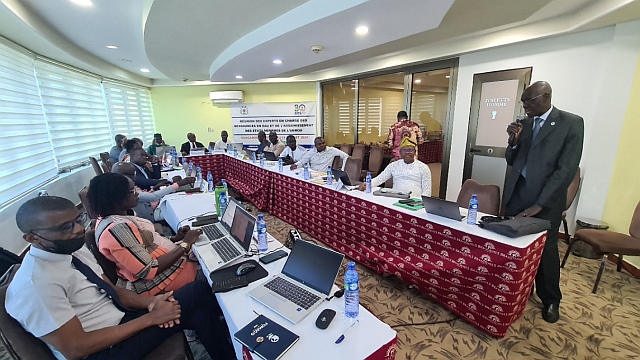 Other challenges are linked to the pollution of resources (mining), the salinisation of coastal waters, unsustainable consumption and extraction of resources, geopolitical and security factors, and climate change, of which water is the main marker (droughts, floods), having a negative impact on the quality and quantity of water.
Other challenges are linked to the pollution of resources (mining), the salinisation of coastal waters, unsustainable consumption and extraction of resources, geopolitical and security factors, and climate change, of which water is the main marker (droughts, floods), having a negative impact on the quality and quantity of water.
Mr SENE then spoke about the organisation of the World Water Forum, the largest international event on water involving all stakeholders, which has been held every 3 years since 1997. He went on to talk about the Blue Deal on Water Security for Peace and Development and the other outcomes of the 9th World Water Forum in Dakar, making the link with the major events of the UN 2023 Conference and the one being prepared for 2026. He recalled the main outcomes of the 10th World Water Forum in Bali on Water for Shared Prosperity, where a special session on "Regional collaboration to advance IWRM for water security and resilience in the WAEMU region: actors, processes, results and perspectives" was organised.
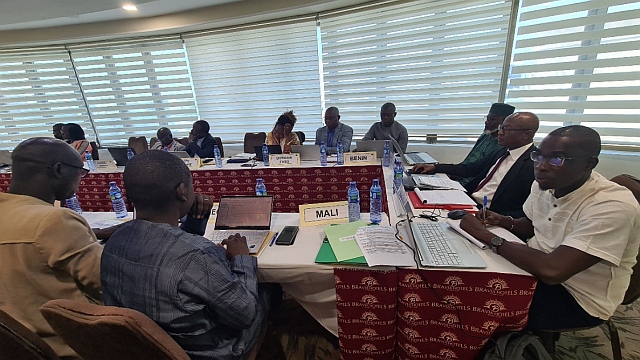 The chair SENE then addressed the prospects for making the most of the results of the Forums before making some strong recommendations for water security in the WAEMU region. These included:
The chair SENE then addressed the prospects for making the most of the results of the Forums before making some strong recommendations for water security in the WAEMU region. These included:
- Support the development and mobilisation of innovative and sustainable financing for the implementation of regional, cross-border and national initiatives for water security and resilient development, taking into account the results of the 9th and 10th Forums, among others.
- Institutionalise the holding every three years of the Regional Forum on IWRM, water security and resilient development in the WAEMU Space to maintain a dynamic of documentation, sharing, consolidation and scaling up of good practices.
- Invite the States to set up their Water Investment Programme (AIP) as a lever for accelerating investment to achieve the water-related SDGs by 2030.
- Draw up and present every three (3) years to the decision-making bodies a report monitoring progress in water security and the mobilisation of investment in the water sector in the WAEMU countries.
- Support the preparation of the 2026 United Nations Conference in order to obtain the appropriate decisions to accelerate the achievement of the SDG and ensure water security in the region.
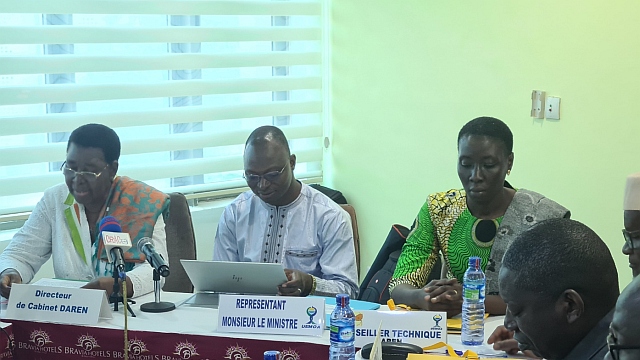 The meeting of the Technical Committee of Experts was opened by the Secretary General of the Minister of the Environment, Water and Sanitation of Burkina Faso, Dr Bouraïma KOUANDA, in the presence of the Director of Cabinet of the Commissioner in charge of the Department of Agriculture, Water Resources and the Environment (DAREN), Mrs Zourata LOMPO/OUEDRAOGO, who said that "We are also grateful to the Global Water Partnership West Africa, represented here, for the quality of its collaboration with the Commission and the Member States". The WAEMU comprises eight countries: Benin, Burkina Faso, Côte d'Ivoire, Guinea Bissau, Mali, Niger, Senegal and Togo.
The meeting of the Technical Committee of Experts was opened by the Secretary General of the Minister of the Environment, Water and Sanitation of Burkina Faso, Dr Bouraïma KOUANDA, in the presence of the Director of Cabinet of the Commissioner in charge of the Department of Agriculture, Water Resources and the Environment (DAREN), Mrs Zourata LOMPO/OUEDRAOGO, who said that "We are also grateful to the Global Water Partnership West Africa, represented here, for the quality of its collaboration with the Commission and the Member States". The WAEMU comprises eight countries: Benin, Burkina Faso, Côte d'Ivoire, Guinea Bissau, Mali, Niger, Senegal and Togo.
